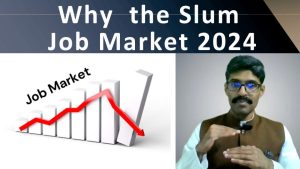The Insider Guide to Careers
Insider information, secrets and tips about getting hired and building careers. For employees and job candidates.
I used to tell my managers and business leaders that when employees stick around in a company for more than two years, they begin to get paid less than their market value for their job. However, empirical data suggests that if old timers complain they are underpaid for their jobs, they are correct most of the time. Typically, the external market wage tends to rise much faster than internal merit raises inside a company. Why, then, would anyone sensible stick around in their job for more than two years?
The answer is that while you can job-hop for salary increases, this game cannot go on forever. Sooner or later, you will need to show promotions as evidence of job capability. Interestingly, promotions are typically not given to people with limited time in their role; it inordinately goes to people who have demonstrated loyalty by sticking around with the company for many years — through thick and thin. So someday, people will need to settle down in a company and duke it out for promotions. Then, when you get promoted, you could get paid a lot more, and you get a chance to begin your compensation discussion on a new slate.
The second reason is that you lose your support ecosystem when you begin work in a new company, where you must learn your work and team culture from scratch. In other words, any new job has a risk premium. Business school research has shown that the higher the risk of getting fired from a new job, the higher the compensation premium the recruiters offer to lure you. A standard measure of risk premium is 20%, which is also a typical compensation hike when one switches companies.
Another aspect to consider is that to get to senior positions like VP and above, one has to stay in a company for a long time and prove their worth for the entire period. Most companies understand that the best way to improve employee engagement and morale is to promote from within and not parachute someone from outside for highly sought-after jobs. When an outsider is hired, they can introduce fresh thinking for sure, but at the same time, they can fail in the workplace if other key stakeholders refrain from cooperating with the new person. Indra Nooyi, the ex-CEO of PepsiCo, was a case in point. Her first action after becoming CEO was to meet up with a colleague in the company who did not make it to the top post and request his cooperation. Even in big tech famous for job hopping, loyalty does matter. Satya Nadella was a Microsoft lifer, Tim Cook had worked only in two jobs before he joined Apple, Sundar Pichai spent close to one and half decades at Google before becoming CEO, and Andy Jassy was another lifer at Amazon.
HR and recruiters are wary of quick job change tactics adopted to enhance compensation. As a result, many do not consider people with limited experience in their previous jobs for critical positions. Job changers know that changing jobs quickly could lead to many questions from recruiters and hence stay put in their workplace rather than face too many questions. Paradoxically, companies with bad organizational cultures benefit as sometimes good employees stay put, thinking quitting jobs may be viewed negatively. A good thumb rule is that if your career is stagnant for 6-7 years, it is time to consider a job change. This time also tallies with promotions in academia, where Assistant Professors get around six years to publish and get tenure.
On the other end of the spectrum is Big Tech firms. The Big Tech sector is unique in that it is way more tolerant of frequent job hopping, partly due to scarcity of talent and somewhat because the high-maintenance software engineers do not suffer fools as managers. While readers may point out that big tech has been laying off people in bulk over the past year, around 79% of laid-off employees find other jobs within three months of searching. So it is not all doom and gloom as our media makes it to be. In addition, few channels mention that traditional sectors like food, retail, and logistics are doing really and are hiring a lot of employees. You may find many opportunities if you are willing to look beyond Silicon Valley and look at other cities in the South and the Midwest US. The current unemployment rate is just 3.4%, well below historic unemployment numbers.
Most employees don’t switch companies just for high compensation. The unsaid reason in most cases is that there is a lot of friction between the employee with the manager, team, or the company culture. Compensation is a hygiene factor, which means that high compensation can never be a motivator, but low compensation can be a demotivator. Work, achievement, and recognition are decisive motivating factors. If the manager and team do not grant those factors to the employee, the employee may look for them elsewhere. While considering other companies, on top of the base and total compensation numbers, also check out the following benefits and cultural facets:
For more, follow also my Substack and Careerbolt channels.



